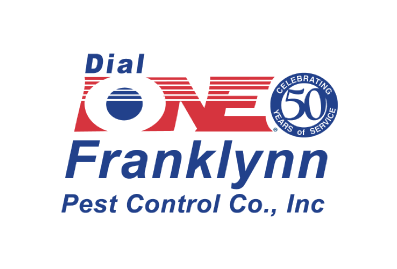The American cockroach is the largest variety of house-infesting roaches found in North America. Also known as the “water bug,” this slick, scuttling bug is most commonly found in large, commercial buildings such as restaurants, eateries, grocery stores, etc. If you’re sensing a food-related theme, you’re right. Roaches are perpetually seeking food and shelter, which means your residential home isn’t safe from these pests as long as you have food in your pantry. If you are considering roach control (an essential extension of general pest control which you should absolutely acquire), these are the most important facts you need to know about one of the most pervasive roaches and how you can avoid infestation.
Roach Fact! More than 5,000 individual roaches have been found in a single sewer manhole.
What is an American Cockroach?
To start, while there are plenty of roaches to worry about, the American Cockroach is a particularly alarming specimen. There are a few factors that make the mighty American Cockroach a formidable pest. To start, this particular roach is not actually from America. The roaches hitchhiked on ships from Africa in the early 1600s, demonstrating their resilience.
Identification: These insects are identified by their reddish-brown color and a yellowish figure 8 pattern located on the back of their head. Adults range from between 1 1/4” to 2 1/8” (32-54mm) in length.
Do American Cockroaches infest homes?
In short, yes. They absolutely do. They are not maliciously targeting homeowners, however, although their presence may feel like a personal attack. Roaches simply enter residential properties to find food and water. Homes are easy targets because they often provide warm, damp spaces in which roaches can hide (crawl spaces, pantries, etc.) They also provide a veritable smorgasbord of scraps and leftovers.
When conducting a quick ‘roach’ search, make sure to check rooms with plenty of hiding spots, such as bathrooms, laundry rooms, kitchens, and basements.
What do American Cockroaches eat?
American Cockroaches are not picky eaters. They will eat whatever is readily available. However, they do have a starchy sweet-tooth and will often gravitate towards sweet foods, bread, beer, food, and even the starch found in book bindings.
When roaches are outdoors, they like to snack on organic materials such as fungi, small insects, decaying leaves, and algae.
Are American Cockroaches dangerous?
Great question! We say yes. While American Cockroaches do not sting or bite, they are known carriers of disease. This is because, like they do not fuss about their diets, they also are not picky about their living environments.
Cockroaches live in damp, dark, safe environment. These environments include sewers, crawl spaces, and dumpsters. While lounging is a rotting pool of garbage and decay doesn’t sound like a holiday to us humans, roaches are happy to roll around in the muck and, subsequently, carry harmful bacteria, mold, and germ particles into your home.
What are signs of an American Cockroach infestation?
The first sign of cockroach infestation is… a cockroach! Roaches prefer privacy, but they are simple creatures. If they have infested your home, they will not be able to resist crumbs and snacks, and you will inevitably see them fleeing to dark areas. Other signs of a cockroach infestation are the following:
· Droppings. Roach droppings have blunt ends and ridged sides. A licensed pest control professional can identify the variety of droppings in your home.
· Eggs. Roaches leave behind egg capsules, which can be approximately 8 mm long and dark in color. These will be found near food sources in pantries or basements.
· Musty Smell. Roaches have been known to release a pheromone that produces a “musty” smell.
Call DIAL ONE Franklynn Pest Control for a Free Roach Control Estimate
DIAL ONE has been performing successful roach control and general pest control on homes throughout New Orleans and Southeastern Louisiana since 1969. If you think you have a roach infestation, there’s no time to wait! To schedule a free estimate, visit our contact page or call 504-885-3101!




